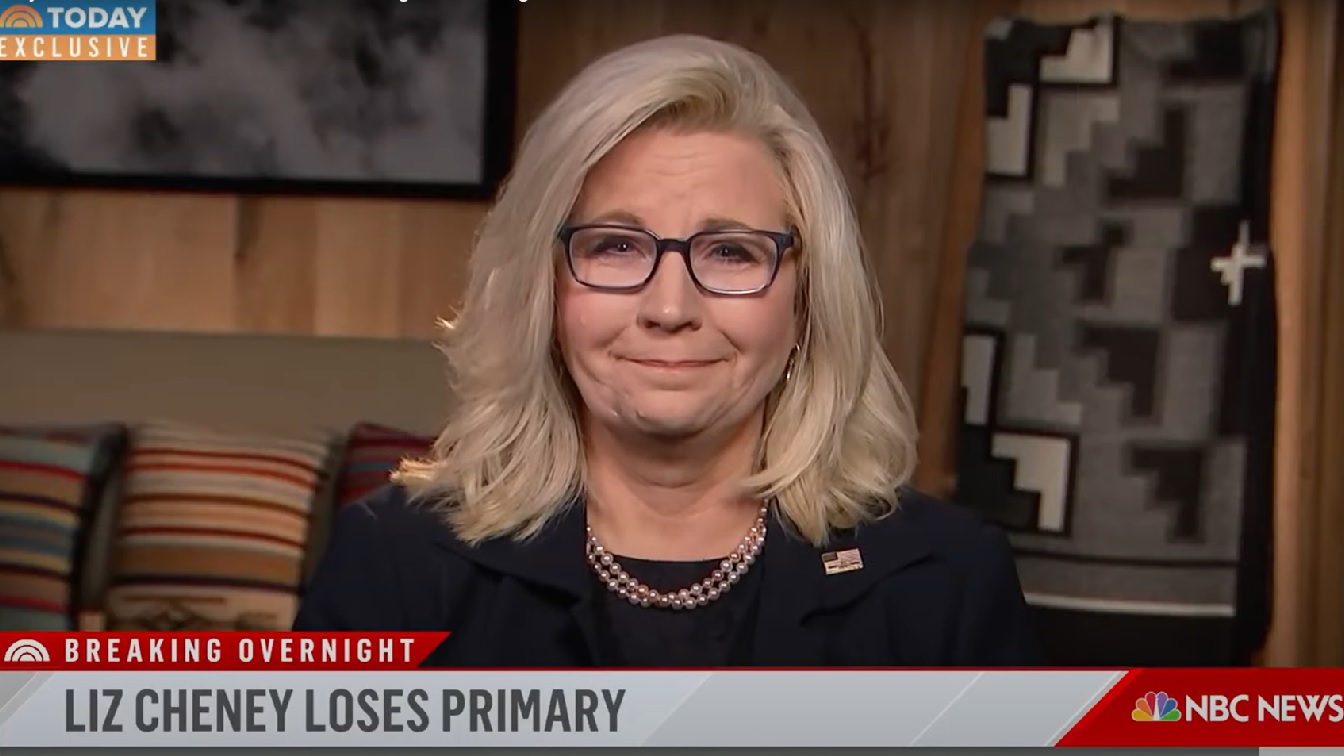Wyoming Rep. Liz Cheney asked Democrats to switch parties last minute and vote for her in the Republican primary, but her efforts ultimately failed after she lost her state primary election on Tuesday.
Despite the loss, however, Cheney is unlikely to disappear from the political scene.
Speculation is rife that the Wyoming representative – daughter of former vice president of the United States Dick Cheney – is planning a 2024 presidential campaign to take the fight to former president Donald Trump directly.
Is She Running?
Cheney has not made an announcement about a potential 2024 presidential run, but she also hasn’t dismissed the idea entirely.
An anti-Trump Republican running in a presidential primary against Trump, no matter their slim chances, is not unprecedented. Former U.S. representative Joe Walsh did it in 2020, launching his campaign on August 25, 2019, and throwing in the towel in February 2021.
Whether Cheney is willing to take that chance just to get up on the stage with former President Trump and air her grievances with him directly, however, is still unclear.
If Cheney is looking for a chance to go head-to-head with the man she’s tried to force out of office, then this is it – but it’s also a great opportunity to permanently ruin her reputation within the Republican Party.
That being said, her reputation among GOP voters is hardly all that great already.
Speaking to CNN’s Jake Tapper in July, Cheney said that she hasn’t made a decision about 2024, acknowledging rumors that she was considering a run.
“At this point, I haven’t made a decision on 2024. I’ll make a decision on 2024 down the road,” she said. “But I do think as we look towards the next presidential election, as I said, you know, I believe that our nation stands on the edge of an abyss and I do believe that we all have to really think very seriously about the dangers we face and the threats we face and we have to elect serious candidates.”
Cheney had the same message for Fox News in July, telling Bret Baier that she is currently focused on “doing what is right” and hasn’t made a decision about a presidential run.
Would Republicans Accept Her?
The short answer is no.
Not only did Cheney vote to impeach former President Donald Trump, but she also sits on the ultra-partisan January 6 Committee which claimed to investigate the origins of the January 6 riot in Washington, D.C., 2021. While two Republicans sit on the committee alongside congressional Democrats, all pro-Trump Republican members of congress put forward by GOP House leader Kevin McCarthy to be a part of the investigation were rejected by House Speaker Nancy Pelosi.
Cheney’s last-minute effort to encourage Wyoming Democrats to switch parties and vote in the Republican primary to “save the Republic” is also unlikely to win her much support among the GOP, particularly following the unprecedented and politically charged raid of former President Donald Trump’s Palm Beach home by the FBI last weekend.
The polls back this up, too, A Morning Consult Poll, completed on August 10 this year, asked over 800 registered voters who they would back in the upcoming Republican presidential primary. A vast majority of those respondents threw their weight behind former President Donald Trump, who is widely expected to announce his campaign either before the November midterms or shortly thereafter.
Trump’s 56% support was trailed by Florida Governor Ron DeSantis, who won 18% support. Former Vice President Mike Pence, arguably the most likely candidate to receive the support of Republicans who believe Trump should no longer be a leader within the GOP, took 8% of the vote.
Cheney received a miniscule 2% support, matching former governor of South Carolina Nikki Haley, Texas Senator Ted Cruz, and Utah Senator Mitt Romney.
The same poll also showed the former president’s support increasing in the wake of the FBI raid on his home last week, showing Trump support within the Republican Party galvanizing. With greater momentum behind a possible third Trump presidential campaign, it would be extraordinarily difficult for Cheney to win over the support of all anti-Trump Republicans as well as some pro-Trump Republicans. That is, unless Democrats follow her last-minute strategy in Wyoming and change their party registration to Republican in such huge numbers that it gives her the edge over one of the most popular Republican candidates in modern history.
That seems unlikely.
Cheney seems to have more support among Democrats today than she does Republicans, but that also doesn’t mean a presidential run on a Democratic Party ticket is on the cards. As much as Democrats like Cheney standing up to Trump within the Republican Party, she’s still a Republican and would likely become the target of ultra-progressives within the Democratic Party if she attempted to make that switch.
If Cheney does decide to run in 2024, she would likely lose and she knows it. It means that a hypothetical Cheney run would be designed to chip away at Trump’s credibility, to have an opportunity to share her side of the story directly to Republican voters on the debate stage, or to empower what remains of the anti-Trump conservative base within the GOP.
Jack Buckby is a British author, counter-extremism researcher, and journalist based in New York. Reporting on the U.K., Europe, and the U.S., he works to analyze and understand left-wing and right-wing radicalization, and reports on Western governments’ approaches to the pressing issues of today. His books and research papers explore these themes and propose pragmatic solutions to our increasingly polarized society.

